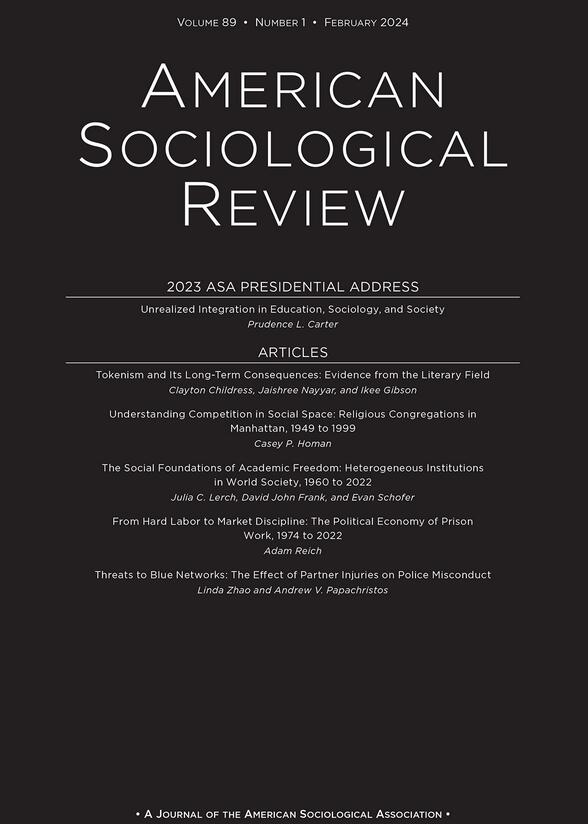血统:魏玛德国的国家边境过境和反犹主义
IF 6.2
1区 社会学
Q1 SOCIOLOGY
引用次数: 2
摘要
这篇文章认为,国家过境点是仇外心理的焦点。两种机制汇聚在一起产生了这种模式。首先,当民族国家面临压力时,过境使跨国家差异凸显,在国际力量和弱势社会阶层的社会经济问题之间产生了明显的联系。其次,过境点象征着国际威胁,并吸引了激进运动的激进民族主义动员,他们将外来种族定性为国际邪恶。在这种独特的空间景观中,外来种族成为失去社会地位的个人中更广泛社会问题的替罪羊。我通过研究大屠杀前魏玛德国反犹太主义的地方差异来发展我的论点。对犹太怪物的统计分析和对当地反犹太主义报告的深入探索揭示了魏玛共和国的多元主义是如何在生活在国家边缘的中下层成员中开始侵蚀的。在这样做的过程中,我提请人们注意仇外心理的空间来源,并表明国家之间的边界激活了国家内部的边界,为多元化和国家形成之间的复杂关系提供了新的线索。本文章由计算机程序翻译,如有差异,请以英文原文为准。
Bloodlines: National Border Crossings and Antisemitism in Weimar Germany
This article argues that national border crossings act as focal points for xenophobia. Two mechanisms converge to produce this pattern. First, when the nation-state is under pressure, border crossings make cross-national differences salient, producing a perceived link between international forces and socioeconomic problems of vulnerable social classes. Second, border crossings come to symbolize international threats and attract aggressive nationalist mobilization by radical movements who frame ethnic outsiders as an international evil. In this distinct spatial landscape, ethnic outsiders become scapegoats for broader social problems among individuals losing social status. I develop my argument through the study of local variation in antisemitism in Weimar Germany before the Holocaust. Statistical analysis of Jewish bogeymen and an in-depth exploration of local reports on antisemitism reveal how pluralism in the Weimar Republic started eroding among members of the lower-middle class living at the margins of the state. In doing so, I draw attention to the spatial sources of xenophobia and demonstrate that borders between nations activate borders within nations, shedding new light on the complicated relationship between pluralism and state formation.
求助全文
通过发布文献求助,成功后即可免费获取论文全文。
去求助
来源期刊

American Sociological Review
SOCIOLOGY-
CiteScore
13.30
自引率
3.30%
发文量
35
期刊介绍:
The American Sociological Association (ASA) is a non-profit membership association established in 1905. Its mission is to advance sociology as a scientific discipline and profession that serves the public good. ASA is comprised of approximately 12,000 members including faculty members, researchers, practitioners, and students in the field of sociology. Roughly 20% of the members work in government, business, or non-profit organizations.
One of ASA's primary endeavors is the publication and dissemination of important sociological research. To this end, they founded the American Sociological Review (ASR) in 1936. ASR is the flagship journal of the association and publishes original works that are of general interest and contribute to the advancement of sociology. The journal seeks to publish new theoretical developments, research results that enhance our understanding of fundamental social processes, and significant methodological innovations. ASR welcomes submissions from all areas of sociology, placing an emphasis on exceptional quality.
Aside from ASR, ASA also publishes 14 professional journals and magazines. Additionally, they organize an annual meeting that attracts over 6,000 participants. ASA's membership consists of scholars, professionals, and students dedicated to the study and application of sociology in various domains of society.
 求助内容:
求助内容: 应助结果提醒方式:
应助结果提醒方式:


